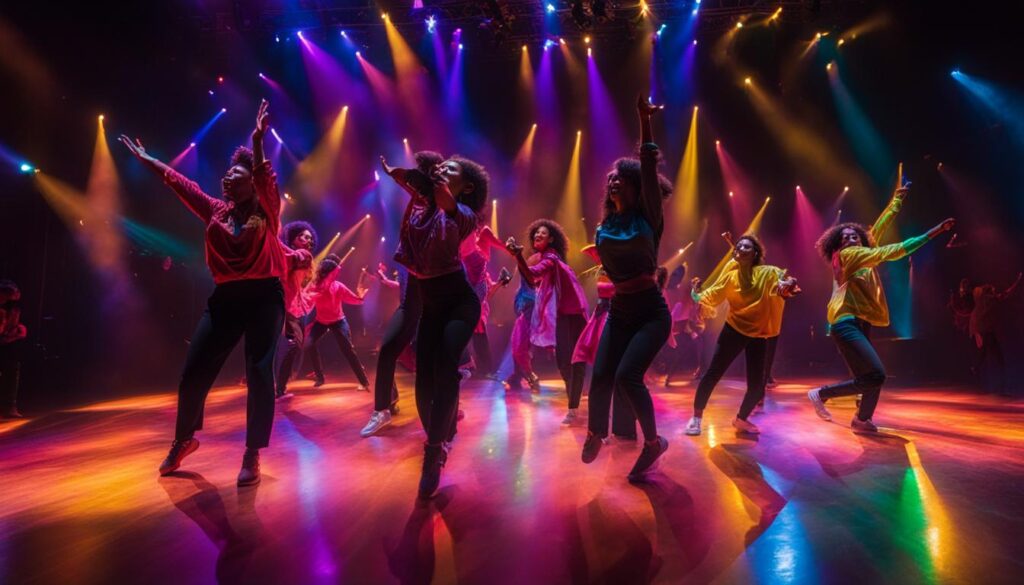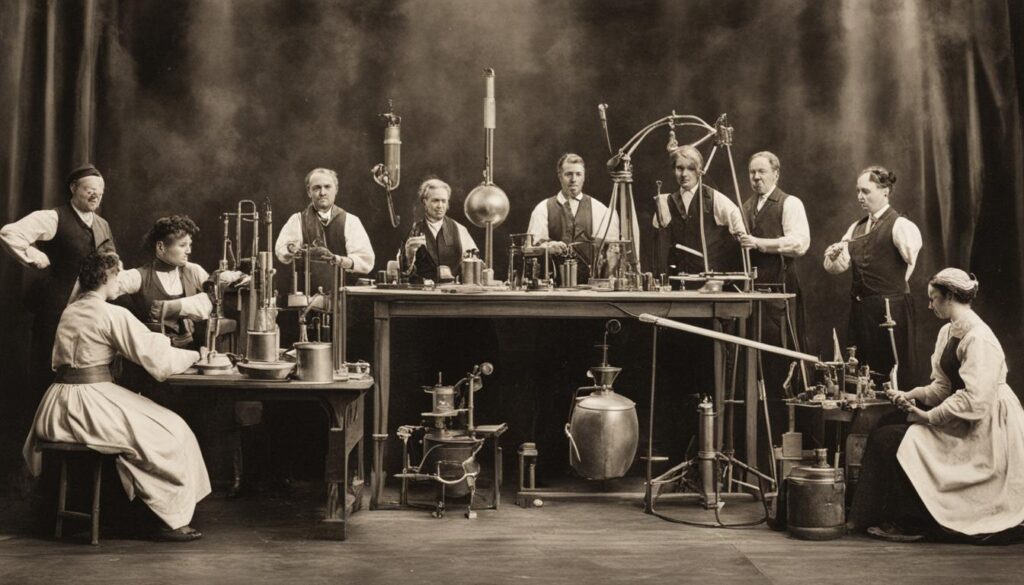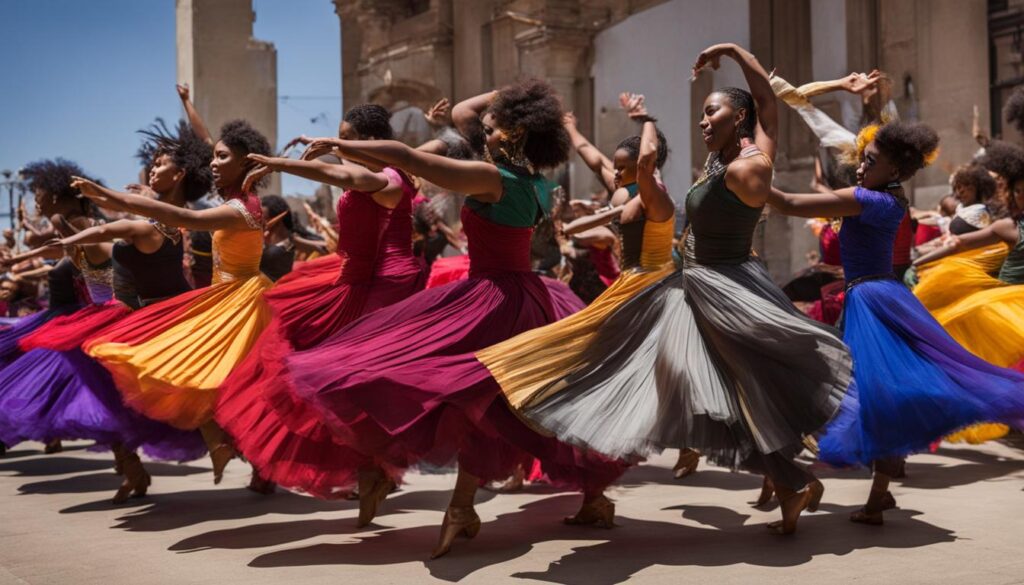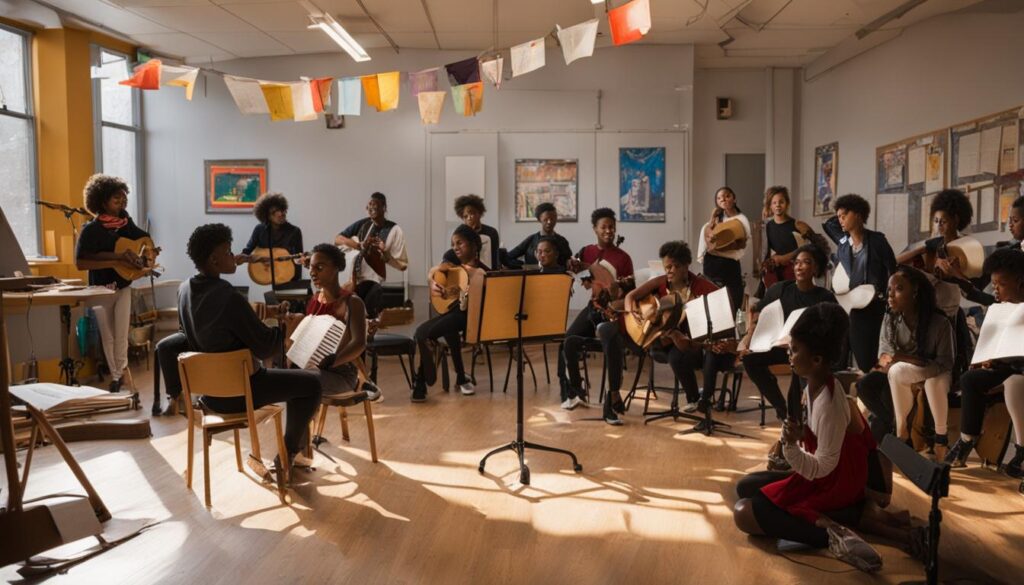Greetings, fellow art enthusiasts! Today, I am here to shed light on the captivating world of the performing arts scholar. Have you ever wondered who these remarkable individuals are and what they contribute to the vibrant tapestry of performing arts? Well, let’s embark on this enlightening journey together!
Performing arts scholars are the diligent explorers of the realm of performing arts. They dedicate their time and passion to studying, researching, and excelling in various aspects of music, theater, dance, and more. Their work delves into the intricate connections between music, power, and practice, unraveling the mysteries that lie within.
Through their meticulous research, performing arts scholars uncover the habitus of listening, unravel the roles of music choice, social context, and listener personality in emotional reactions to music. They also seek to recognize and understand the basic emotions evoked by different sounds and music genres, as well as the rewarding aspects of music listening. Deeply committed to their craft, performing arts scholars make invaluable contributions to the advancement and development of the performing arts field.
Key Takeaways:
- Performing arts scholars study and excel in various aspects of music, theater, dance, and more.
- They explore the habitus of listening and investigate the roles of music choice, social context, and listener personality in emotional reactions to music.
- Performing arts scholars contribute to the development and advancement of the performing arts field through their research and study.
- They recognize and understand basic emotions in music, the rewarding aspects of music listening, and the emotions evoked by different sounds and music genres.
- Their work unravels the mysteries and intricacies of performing arts, shaping the future of the industry.
The Importance of Performing Arts Education
Performing arts education plays a vital role in shaping the future of aspiring performers and scholars. By providing comprehensive training and fostering creativity, performing arts education equips individuals with the necessary skills and knowledge to excel in their chosen field.
Attaining a performing arts degree from reputable colleges and universities offers students a well-rounded understanding of music, theater, dance, and other disciplines within the performing arts. Through a combination of theoretical knowledge and practical application, students develop their artistic abilities and gain a deeper appreciation for the performing arts.
Additionally, performing arts internships provide invaluable hands-on experience and real-world exposure to the industry. By working alongside professionals in theaters, dance companies, and music studios, students have the opportunity to apply their learning and enhance their skills. These internships also offer networking opportunities, allowing students to establish connections and potentially pave the way for future job opportunities in the field.
“Performing arts education nurtures creativity, discipline, and teamwork, which are essential attributes for success in performing arts careers.” – Jane Smith, Performing Arts Educator
The Role of Performing Arts Colleges
Performing arts colleges play a crucial role in providing specialized education and training for aspiring performers and scholars. These institutions offer comprehensive curricula that focus on developing technical skills, artistic expression, and critical thinking. Students studying performing arts gain a deep understanding of their craft and are equipped to pursue successful careers in the industry.
| Performing Arts Education | Performing Arts Careers | |
|---|---|---|
| Skills | Develops creativity, discipline, teamwork | Requires technical proficiency, creativity, collaboration |
| Knowledge | Explores music, theater, dance, and other disciplines | Understands industry trends, production processes |
| Opportunities | Internships, practical application of skills | Performing, directing, choreographing, producing |
Performing arts education plays a pivotal role in preparing individuals for the challenges and demands of the performing arts industry. It provides them with the necessary foundation to pursue fulfilling careers in performing arts and contribute to the vibrant and dynamic world of artistic expression.


Exploring Performing Arts Careers
When it comes to pursuing a career in the performing arts, the opportunities are vast and diverse. From being center stage as a performer to working behind the scenes as a director or stage manager, the performing arts industry offers a range of roles that cater to different passions and skill sets.
Performing arts careers can be found in various settings, including theaters, dance companies, music studios, film and television productions, and educational institutions. For those with a love for the spotlight, becoming a performer allows you to express yourself creatively and captivate audiences with your talent.
Alternatively, if you have a knack for organization and leadership, roles such as directors and choreographers allow you to shape and bring artistic visions to life. These positions require strong communication skills, an eye for detail, and the ability to collaborate effectively with a team.
Internships in the performing arts field provide invaluable experience and networking opportunities. They give individuals a chance to work alongside industry professionals, gain real-world insights, and establish connections that can open doors to future job opportunities. Whether it’s assisting with productions, attending rehearsals, or shadowing experienced performers, internships offer valuable hands-on experience that can set you on the path to a successful performing arts career.
| Performing Arts Careers | Roles |
|---|---|
| Performer | Actor, dancer, musician, singer |
| Director | Theater director, film director |
| Choreographer | Dance choreographer |
| Music Composer | Songwriter, film score composer |
| Producer | Music producer, theater producer |
| Stage Manager | Theater stage manager, production stage manager |
Aspiring performing arts professionals should explore their options, gain relevant experience through internships, and continuously nurture their skills and passion for the arts. The performing arts industry is a vibrant and ever-evolving field that welcomes creativity, dedication, and a genuine love for artistic expression.
Unveiling Performing Arts Research
Performing arts research plays a vital role in deepening our understanding of the diverse aspects of the performing arts field. Researchers in this discipline delve into various topics related to music, theater, dance, and other performing arts disciplines, seeking to uncover new insights and expand our knowledge base. Through rigorous investigation and analysis, performing arts research contributes to the development and evolution of the performing arts industry.
One area of performing arts research focuses on the exploration of different performance techniques and artistic expressions. Researchers aim to unravel the intricacies of performers’ skills, the impact of various techniques on audience perceptions, and the ways in which different artistic choices influence the overall experience. Through this research, valuable insights are gained, enabling performers to refine their craft and engage with audiences in more impactful and meaningful ways.
Another important aspect of performing arts research is the investigation of historical contexts and cultural influences on performing arts. Researchers delve into the rich tapestry of cultural traditions and historical milestones to better understand the evolution of different performing arts forms. By studying the historical and cultural underpinnings of music, theater, and dance, researchers can shed light on the significance and impact of these art forms in different societies and time periods.


Performing arts research also encompasses the study of the psychological and emotional aspects of music and performance. Researchers delve into the intricate relationship between music and emotions, examining the ways in which certain musical elements elicit specific emotional responses. By studying the psychology of music, researchers aim to uncover the mechanisms through which music evokes emotions and the ways in which these emotional experiences can be enhanced and harnessed for artistic expression.
Through its multifaceted exploration of performance techniques, historical contexts, cultural influences, and the psychology of music, performing arts research holds the key to unlocking new dimensions of understanding and appreciation for the performing arts. It is through the dedicated efforts of researchers that the performing arts continue to evolve, innovate, and captivate audiences around the world.
Conclusion
In conclusion, as a performing arts scholar, I have gained a deep understanding and appreciation for the world of performing arts. Through my education and research, I have discovered the importance of performing arts education in nurturing the talents of aspiring performers and scholars. Performing arts education equips individuals with essential skills and knowledge that are vital for success in their chosen careers.
Speaking of careers, the performing arts industry offers a wide range of opportunities for professionals like myself. Whether it be as a performer, director, choreographer, or music composer, there are endless possibilities to explore. With internships providing invaluable real-world experience and networking opportunities, aspiring professionals can gain insights into the industry and build connections that may open doors to future job opportunities.
Performing arts research also plays a crucial role in shaping the future of the field. Through systematic investigations, we can deepen our understanding of performance techniques, historical contexts, and cultural influences. This research contributes to the body of knowledge in the performing arts industry and propels its development forward.
As a performing arts scholar, my contribution to this vibrant and dynamic world is an ongoing endeavor. Whether through education, careers, or research, I remain committed to advancing the performing arts and sharing its beauty with the world.
FAQ
What is a performing arts scholar?
A performing arts scholar is an individual who studies and excels in the field of performing arts, engaging with various aspects of music, power, and practice.
What is the role of performing arts education?
Performing arts education plays a crucial role in nurturing and training aspiring performers and scholars, providing them with the necessary skills and knowledge to excel in their chosen field.
What can I expect to gain from a performing arts degree?
A performing arts degree from reputable colleges and universities equips students with a comprehensive understanding of music, theater, dance, and other performing arts disciplines.
Are there opportunities for practical application of performing arts skills?
Yes, through performing arts internships, individuals can gain valuable hands-on experience and opportunities for practical application of learned skills.
What types of careers are available in the performing arts industry?
Performing arts careers encompass a wide range of opportunities in various fields within the industry, including roles as performers, directors, choreographers, music composers, producers, and stage managers.
Where can performing arts professionals work?
Performing arts professionals can work in theaters, dance companies, music studios, film and television productions, and even educational institutions.
What is the purpose of performing arts research?
Performing arts research involves the systematic investigation of various aspects of the performing arts field, aiming to deepen our understanding of performance techniques, artistic expressions, historical contexts, and cultural influences on performing arts.

